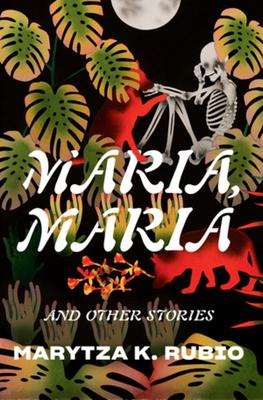"The first witch of the waters was born in Destruction. The moon named her Maria."
Set against the tropics and megacities of the Americas, Maria, Maria takes inspiration from wild creatures, tarot, and the porous borders between life and death. Motivated by love and its inverse, grief, the characters who inhabit these stories negotiate boldly with nature to cast their desired ends. As the enigmatic community college professor in "Brujera for Beginners" reminds us: "There's always a price for conjuring in darkness. You won't always know what it is until payment is due." This commitment drives the disturbingly faithful widow in "Tijuca," who promises to bury her husband's head in the rich dirt of the jungle, and the sisters in "Moksha," who are tempted by a sleek obsidian dagger once held by a vampiric idol.
But magic isn't limited to the women who wield it. As Rubio so brilliantly elucidates, animals are powerful magicians too. Subversive pigeons and hungry jaguars are called upon in "Tunnels," and a lonely little girl runs free with a resurrected saber-toothed tiger in "Burial." A colorful catalog of gallery exhibits from animals in therapy is featured in "Art Show," including the Almost Philandering Fox, who longs after the red pelt of another, and the recently rehabilitated Paranoid Peacocks.
Brimming with sharp wit and ferocious female intuition, these stories bubble over into the titular novella, "Maria, Maria"--a tropigoth family drama set in a reimagined California rainforest that explores the legacies of three Marias, and possibly all Marias. Writing in prose so lush it threatens to creep off the page, Rubio emerges as an ineffable new voice in contemporary short fiction.
